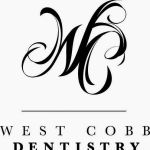Can Over-the-Counter Products Effectively Treat Gum Disease?
- 1. Understanding Gum Disease
- 2. Over-the-Counter Products for Gum Disease
- 3. When to Seek Professional Care
- 4. Real-Life Examples of OTC Success
- 5. Conclusion and Next Steps
1. Understanding Gum Disease
Gum disease, also known as periodontal disease, is a serious condition affecting the gums and supporting structures of your teeth. It begins with gingivitis, which is the mildest form of gum disease, but if left untreated, it can lead to more severe periodontal disease that may result in tooth loss. Symptoms often include swollen, bleeding gums, bad breath, and discomfort while chewing. Early detection and treatment are critical to prevent the disease from progressing.
2. Over-the-Counter Products for Gum Disease
For those looking to manage gum disease at home, there are various over-the-counter (OTC) products available. These include medicated mouthwashes, toothpaste with fluoride or antibacterial agents, and gum gels that can help reduce inflammation and prevent plaque buildup. While OTC treatments can be effective for mild cases of gum disease, they should not be seen as a replacement for professional care when the condition worsens.
OTC products work by targeting the bacteria that cause gum inflammation and plaque buildup. Ingredients like fluoride, triclosan, and chlorhexidine are commonly found in these products, and they help in reducing gum inflammation and preventing the progression of gum disease.
3. When to Seek Professional Care
While OTC products can be a great starting point for managing gum disease, they are not always enough to address more advanced stages. If you experience persistent symptoms such as deep gum pockets, severe bleeding, or loose teeth, it’s crucial to seek professional care. A dentist can perform a thorough examination and recommend treatments like scaling and root planing, or even surgical procedures for advanced cases.
4. Real-Life Examples of OTC Success
Many people have successfully managed the early stages of gum disease with OTC products. For example, Sarah, a 35-year-old woman, noticed her gums were bleeding slightly when brushing. She started using an antibacterial mouthwash and a fluoride toothpaste daily, which significantly reduced the bleeding and improved her gum health. However, after a few months, her symptoms returned, and she sought professional dental care for further treatment.
It’s important to remember that while OTC products can provide temporary relief, they are best used in conjunction with regular dental visits and proper oral hygiene practices.
5. Conclusion and Next Steps
If you’re dealing with the early signs of gum disease, over-the-counter products can be an effective part of your oral care routine. However, it’s essential to monitor your symptoms and consult a dentist if your condition worsens. For those who are serious about improving their gum health, regular brushing, flossing, and professional check-ups are key to preventing further issues.
For more detailed information on how to manage your gum health, visit Dentistry Toothtruth and explore a range of products that can help you maintain optimal oral hygiene.







 Advanced Dental Techniques5.0 (325 review)
Advanced Dental Techniques5.0 (325 review) David L Goettee, D.D.S., PC5.0 (1 review)
David L Goettee, D.D.S., PC5.0 (1 review) Collegeville Pediatric Dentistry4.0 (33 review)
Collegeville Pediatric Dentistry4.0 (33 review) Comfort Care Dental4.0 (1156 review)
Comfort Care Dental4.0 (1156 review) American Unity Dental4.0 (177 review)
American Unity Dental4.0 (177 review) Amazing Family Dental5.0 (304 review)
Amazing Family Dental5.0 (304 review) The Importance of Oral Health Education During Pregnancy for a Healthy Pregnancy
The Importance of Oral Health Education During Pregnancy for a Healthy Pregnancy Best Tips for Brushing Your Teeth Properly for Healthy Gums: Essential Techniques for Oral Health
Best Tips for Brushing Your Teeth Properly for Healthy Gums: Essential Techniques for Oral Health Why Skipping Dental Checkups Can Lead to Bigger Oral Health Problems
Why Skipping Dental Checkups Can Lead to Bigger Oral Health Problems Advantages of Porcelain Dental Restorations
Advantages of Porcelain Dental Restorations How Can Diabetes Cause Tooth and Gum Problems? Preventing and Managing Oral Health Issues
How Can Diabetes Cause Tooth and Gum Problems? Preventing and Managing Oral Health Issues Healthy Habits for Promoting Good Oral Health and Hygiene: Tips for a Healthy Smile
Healthy Habits for Promoting Good Oral Health and Hygiene: Tips for a Healthy Smile